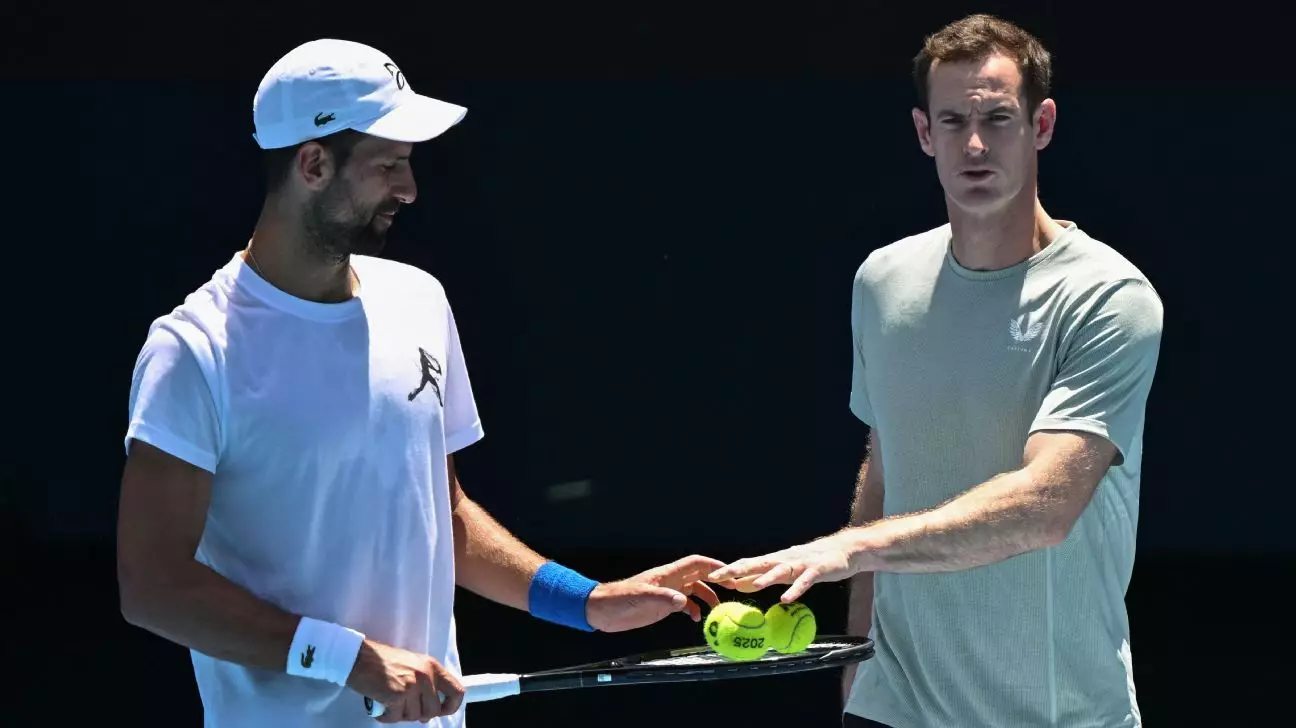In the competitive world of professional tennis, partnerships can be as volatile as the matches themselves. This truth was recently highlighted when Novak Djokovic announced the premature end of his six-month coaching partnership with Andy Murray. Once seen as a promising combination, the duo found themselves grappling with disappointing results shortly after they joined forces. This breakup serves as a stark reminder that even the most respected figures in sports can struggle to achieve the desired synergy.
The Complexity of Rivalry
The relationship between Djokovic and Murray has always been layered with complexity. Both players have been fierce rivals, constantly pushing each other to new heights. Their history on the court adds an intriguing element to their coaching collaboration. However, the expectation that their combined experiences would yield favorable results did not come to fruition as quickly as fans hoped. As Djokovic himself noted, the transition from rivals to allies was filled with challenges, and despite their attempts, the chemistry didn’t quite click on the practice court or during matches.
Mutual Admiration, Yet Inconsistent Results
Both Djokovic and Murray expressed gratitude for the partnership. Djokovic thanked Murray for the “hard work, fun, and support” provided during their time together, recognizing how much effort went beyond just performance metrics. Murray, on the other hand, acknowledged the incredible opportunity, demonstrating how mutual respect persisted even as results faltered. It’s a classic case where mutual admiration does not translate into effectiveness; all the goodwill in the world cannot mask the disheartening reality of underwhelming performance on the scoreboard.
Challenges of Team Dynamics
The coaching world in tennis is laden with expectations. Coaches are not just mentors; they serve as a pivotal part of a player’s strategy and emotional fortitude. In Djokovic’s case, having transitioned from previous successful coaching arrangements, the change to Murray brought fresh ideas but also unforeseen challenges. Struggling with injuries and early exits from important tournaments like the Miami Open undoubtedly strained this collaboration. Expectations had been high for Djokovic, especially as he aimed for his eighth Wimbledon title. Yet the reality of poor performances ultimately forced their hand in ending the partnership earlier than anticipated.
Future Endeavors and Lessons Learned
For Djokovic, the future looks uncertain, yet there remains hope for resurgence. After a notably rocky start to the season, with disappointing results in Masters tournaments, he is now eyeing a wildcard entry into the Geneva Open. This matches a trajectory of resilience and adaptability inherent to his career. Murray, too, has shown immense class and professionalism in his departure from the coaching role, wishing Djokovic all the best moving forward. This episode serves as an education for both players and aspiring coaches: collaboration is intricate, and sometimes, despite the best intentions, the partnership may not yield the desired outcomes.
The short-lived coaching relationship between Murray and Djokovic paints a vivid picture of the trials inherent in the sporting landscape, illustrating that even in the midst of elite performance, success can often be elusive.


Leave a Reply